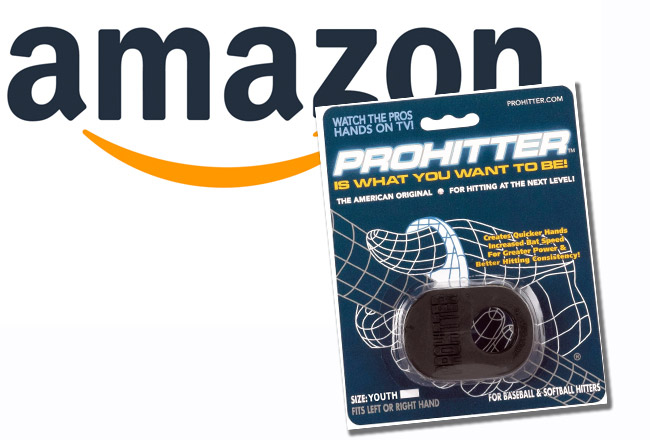Pro-Hitter Corp., a Rockland company that makes a device that is billed as helping baseball players to bat more powerfully, has accused Amazon.com Inc. of selling counterfeits of its invention.
Pro-Hitter of New City is demanding that the Seattle online retailer apologize to its customers and destroy bogus Prohitters, according to a lawsuit filed Sept. 14 in U.S. District Court, White Plains.
 “This case is the classic David and Goliath story, with Amazon, a company boasting a ”¦ reported trillion-dollar valuation, ” the complaint states, “facilitating activities that, if not stopped, will destroy Pro-Hitter.”
“This case is the classic David and Goliath story, with Amazon, a company boasting a ”¦ reported trillion-dollar valuation, ” the complaint states, “facilitating activities that, if not stopped, will destroy Pro-Hitter.”
Pro-Hitter”™s patented batting-aid is worn on the thumb to improve bat grip and cushion the sting of a hit, according to the lawsuit, thus increasing bat speed and power.
For 34 years, company founder Philip Lomedico has cultivated Major League Baseball players, at spring training, for instance, “to get his product into their hands.”
Last year, the complaint states, more than 119,000 batting aids were sold to softball and baseball players by sporting goods stores, pro shops at batting cage facilities, major chain retailers, sports medicine distributors, wholesalers and Amazon.
The packaging includes a distinctive trademarked image depicting the device on a batter”™s hand.
Counterfeiters allegedly make similar cheaper devices and sell them in packaging that mimics Pro-Hitter”™s and trick customers into buying the fakes.
Amazon has purchased tens of thousands of genuine Prohitters from the company”™s authorized distributor over the past 15 years.
But in test orders placed by Pro-Hitter, the online retailer allegedly shipped many counterfeits, and in at least once instance, sent a package containing both genuine and fake batting aids.
Pro-Hitter claims that Amazon should know better because side-by-side comparisons of the devices and packaging reveal several differences.
“In an attempt to quickly fulfill and ship orders,” the complaint states, “Amazon substitutes genuine products with a supply of counterfeit products that it purchases to stock its distribution centers.”
By listing Prohitters as “sold by” Amazon but shipping counterfeits, the company argues, Amazon is infringing on its trademarks.
Customers who receive the cheaper products attribute their inferior quality to Pro-Hitter, thus leading to negative reviews and harming the company”™s reputation.
Pro-Hitter claims it asked Amazon to help identify counterfeiter suppliers, but “Amazon failed to respond in any meaningful way” and has continued to ship fakes.
Pro-Hitter has had to shift focus, “from running its business normally,” the complaint states, “to figuring out how to survive low-cost counterfeits.”
The device-maker accuses Amazon of trademark counterfeiting, including contributory and vicarious liability; unfair competition; and deceptive trade practices.
Amazon spokeswoman Mary Kate McCarthy declined to comment on the allegations.
Pro-Hitter wants the court to order Amazon to stop unauthorized use of its trademarks and of confusingly similar designs, apologize to customers who bought the fakes, destroy phony products and packaging, identify sellers and sources who infringe on the trademarks, and award profits and damages to Pro-Hitter.
Pro-Hitter is represented by Manhattan attorneys Sandra D. Grannum and Lucas B. Michelen.





















